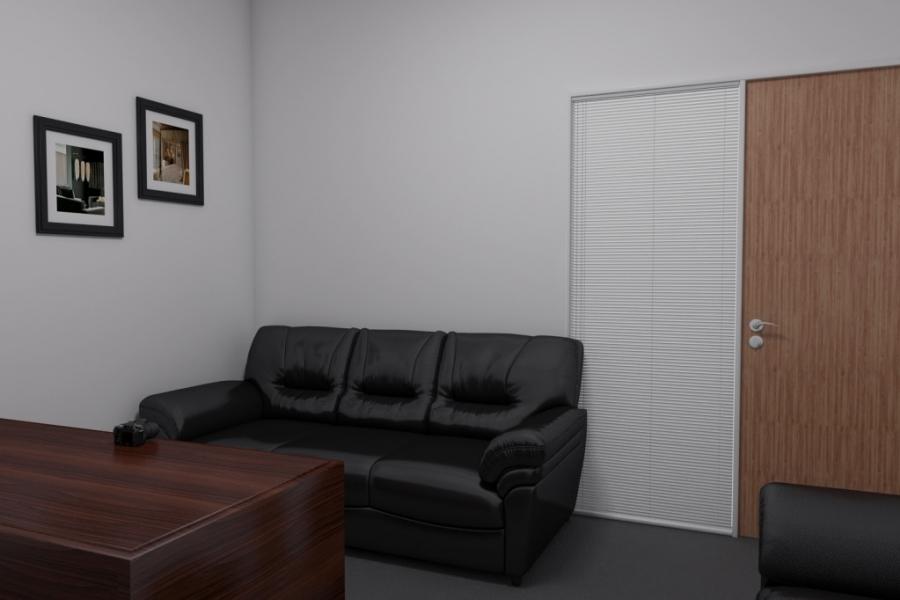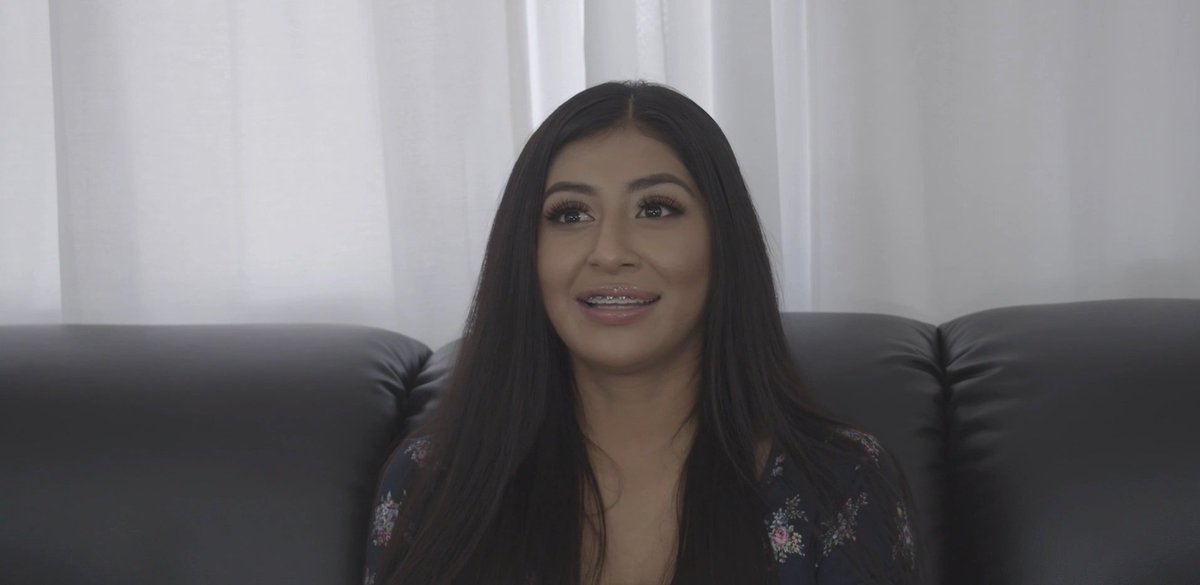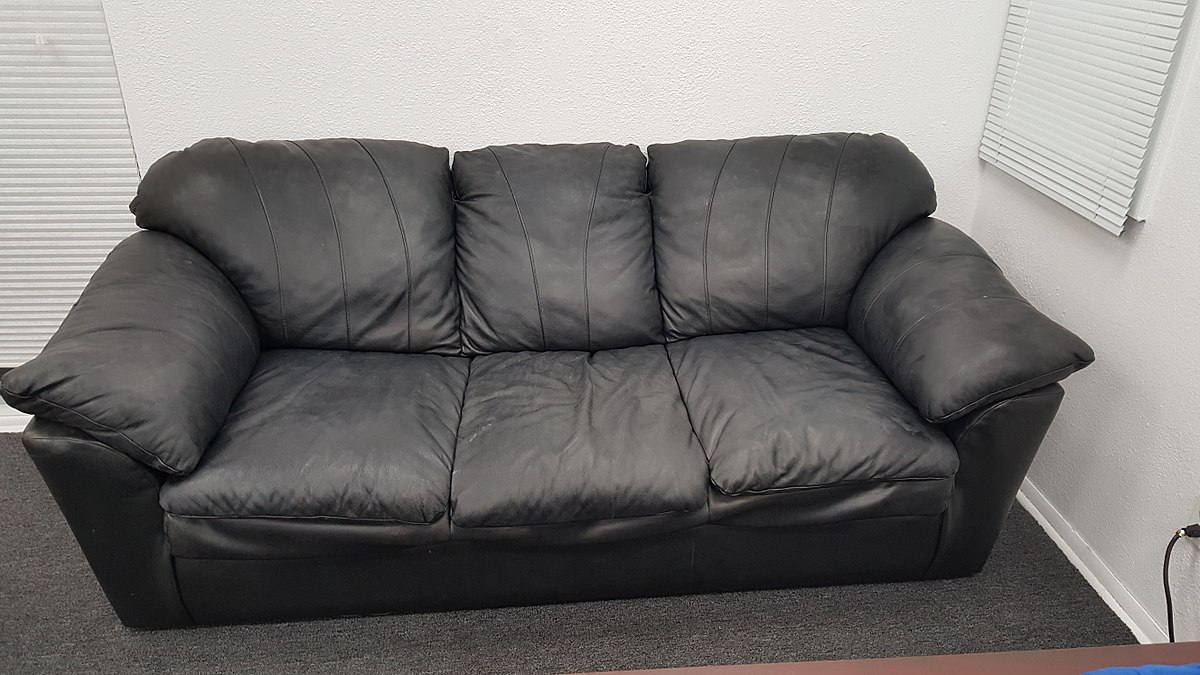Madison from Backroom Casting Couch: Unveiling the Notorious Internet Phenomenon
The term "Madison from Backroom Casting Couch" refers to a viral video that surfaced online, depicting an audition gone awry. In the video, a young aspiring actress named Madison is subjected to inappropriate behavior during a casting call in a secluded backroom. This incident ignited a storm of controversy and debate, shedding light on the dark underbelly of the entertainment industry.
The widespread attention garnered by the video underscores its relevance in today's digital age. It serves as a stark reminder of the rampant sexual harassment and abuse that persists within the entertainment industry, particularly targeting vulnerable individuals seeking opportunities. The incident sparked discussions about power dynamics, consent, and the need for systemic change to ensure safer and more ethical practices.
Historically, the casting couch phenomenon has been shrouded in secrecy and shame, with victims often fearing retaliation or damage to their careers if they speak out. However, the Madison video brought this issue into the public eye, prompting a collective reckoning and inspiring victims to come forward with their own stories. This pivotal moment marked a turning point in the fight against abuse in the entertainment industry.
As we delve deeper into the story of Madison from Backroom Casting Couch, we will explore the ripple effects of this incident, the ongoing efforts to combat abuse in the entertainment industry, and the evolving landscape of power dynamics in the digital age.
Madison from Backroom Casting Couch
The Madison from Backroom Casting Couch incident brought to light several essential aspects that warrant exploration:
- Power Dynamics: The inherent imbalance of power between casting agents and aspiring actors/actresses, leading to potential abuse.
- Sexual Harassment: The prevalence of inappropriate behavior and sexual advances during casting calls, creating a hostile environment.
- Lack of Accountability: The historical culture of silence and fear of retaliation, preventing victims from speaking out against abuse.
These key points are interconnected and reflect systemic issues within the entertainment industry. The power dynamics often create a situation where aspiring actors/actresses feel pressured to comply with the demands of casting agents or risk losing opportunities. Sexual harassment, in this context, becomes a tool to exert control and exploit vulnerable individuals. The lack of accountability further exacerbates the problem, as perpetrators often face little to no consequences for their actions.
The Madison video served as a catalyst for change, shedding light on these issues and sparking a broader conversation about the need for transparency, accountability, and safer practices in the entertainment industry. It also highlighted the importance of addressing power imbalances and creating a culture where victims feel empowered to come forward and seek justice.
Power Dynamics
In the context of the Madison from Backroom Casting Couch incident, the inherent imbalance of power between casting agents and aspiring actors/actresses plays a crucial role. Casting agents often hold significant influence over the careers of aspiring actors/actresses, creating a situation where the latter may feel pressured to comply with inappropriate demands or risk losing opportunities.
This power imbalance can manifest in various ways. Casting agents may use their position to make sexual advances, demand sexual favors, or engage in other forms of abuse. Aspiring actors/actresses, particularly those who are new to the industry or in vulnerable positions, may feel compelled to comply due to the fear of retaliation, damage to their reputation, or loss of career prospects.
The Madison video exemplifies this power dynamic. Madison, an aspiring actress, is subjected to inappropriate behavior and sexual advances during a casting call by a casting agent. The video highlights the vulnerable position of actors/actresses seeking opportunities in the entertainment industry and the potential for abuse when power dynamics are skewed.
Understanding the power dynamics at play in the Madison from Backroom Casting Couch incident is crucial for addressing the broader issue of abuse in the entertainment industry. It sheds light on the systemic factors that contribute to abuse and the need for comprehensive solutions that empower aspiring actors/actresses and hold casting agents accountable for their actions.
Furthermore, this understanding can inform the development of policies and practices that promote transparency, fairness, and accountability in the casting process. By addressing the power imbalance and creating a safer environment for aspiring actors/actresses, the industry can work towards preventing similar incidents and fostering a culture of respect and equality.
Sexual Harassment
The prevalence of sexual harassment during casting calls creates a hostile environment for aspiring actors and actresses, exemplified by the Madison from Backroom Casting Couch incident. This widespread issue has severe consequences, fostering a culture of fear, silence, and abuse.
Sexual harassment during casting calls often involves casting agents or other industry professionals engaging in inappropriate behavior and sexual advances towards aspiring actors/actresses. This can range from verbal harassment, such as sexually suggestive comments or propositions, to physical harassment, including unwanted touching, groping, or assault. Such behavior creates a hostile environment where individuals feel unsafe, intimidated, and unable to pursue their career aspirations freely.
The Madison from Backroom Casting Couch incident serves as a stark example of the consequences of sexual harassment in casting calls. The video, which went viral online, showed an aspiring actress named Madison being subjected to sexual advances and inappropriate behavior during an audition. This incident sparked outrage and highlighted the urgent need to address the issue of sexual harassment in the entertainment industry.
Understanding the connection between sexual harassment during casting calls and the Madison from Backroom Casting Couch incident is crucial for several reasons. First, it sheds light on the systemic nature of sexual harassment in the entertainment industry and the power dynamics that enable it. Second, it emphasizes the importance of creating safe and respectful environments for aspiring actors/actresses to pursue their careers without fear of abuse. Third, it highlights the need for industry-wide policies and initiatives to prevent and address sexual harassment during casting calls.
By recognizing the prevalence of sexual harassment during casting calls and its impact on aspiring actors/actresses, we can work towards creating a more equitable and just entertainment industry where everyone feels safe and respected.
Lack of Accountability
In the wake of the Madison from Backroom Casting Couch incident, the historical culture of silence and fear of retaliation that has prevented victims from speaking out against abuse in the entertainment industry has come under scrutiny.
- Fear of Retaliation: The fear of losing opportunities, being blacklisted, or facing personal or professional backlash has historically silenced victims of abuse in the entertainment industry.
- Lack of Support: Survivors of abuse often lack the emotional, financial, and legal support necessary to come forward and pursue justice.
- Cultural Stigma: The entertainment industry has historically perpetuated a culture where victims of abuse are blamed or shamed, creating a hostile environment for speaking out.
- Non-Disclosure Agreements: The use of non-disclosure agreements (NDAs) has been prevalent in the entertainment industry, preventing victims from speaking out about their experiences.
The lack of accountability in the entertainment industry has allowed a culture of abuse to persist, with victims feeling unable to come forward and seek justice. The Madison from Backroom Casting Couch incident has shed light on this issue and sparked a broader conversation about the need for systemic change to protect aspiring actors and actresses from abuse.
Frequently Asked Questions
This section aims to address common questions and provide clarity on various aspects of the Madison from Backroom Casting Couch incident.
Question 1: What is the Madison from Backroom Casting Couch incident?The Madison from Backroom Casting Couch incident refers to a viral video depicting an aspiring actress named Madison subjected to inappropriate behavior and sexual advances during a casting call in a secluded backroom. This incident ignited discussions about power dynamics, consent, and the need for systemic change in the entertainment industry.
Question 2: Why is the Madison video significant?The Madison video gained widespread attention and sparked a collective reckoning due to its stark portrayal of the rampant sexual harassment and abuse within the entertainment industry. It highlighted the power imbalances and lack of accountability that perpetuate such behavior.
Question 3: What are the consequences of sexual harassment in casting calls?Sexual harassment during casting calls creates a hostile environment for aspiring actors/actresses, leading to fear, silence, and abuse. It can hinder career opportunities, cause emotional distress, and perpetuate a culture of impunity for perpetrators.
Question 4: How does the lack of accountability contribute to abuse in the entertainment industry?The historical culture of silence and fear of retaliation has prevented victims of abuse in the entertainment industry from speaking out. Non-disclosure agreements (NDAs) and the lack of support for survivors further contribute to the lack of accountability, allowing a culture of abuse to persist.
Question 5: What are some key takeaways from the Madison incident?The Madison incident underscores the urgent need for systemic change to address power imbalances, combat sexual harassment, and create a safer environment for aspiring actors/actresses. It also highlights the importance of collective action, industry-wide policies, and cultural shifts to end abuse in the entertainment industry.
Question 6: How can we work towards preventing similar incidents in the future?To prevent similar incidents, we need comprehensive solutions that empower aspiring actors/actresses, hold casting agents and industry professionals accountable, and foster a culture of respect, transparency, and equality in the entertainment industry.
These FAQs provide insights into the significance, consequences, and implications of the Madison from Backroom Casting Couch incident. As we delve deeper into this topic, we will explore potential solutions, industry initiatives, and ongoing efforts to combat abuse and promote a safer environment in the entertainment industry.
TIPS
This section provides actionable tips to promote a safer and more equitable environment in the entertainment industry, particularly in response to the Madison from Backroom Casting Couch incident.
Tip 1: Foster a Culture of Respect:Establish a zero-tolerance policy for sexual harassment and abuse, and actively promote a culture of respect and equality among all industry professionals.Tip 2: Implement Transparent Casting Practices:
Ensure transparency in casting processes by providing clear guidelines, conducting auditions in open and monitored spaces, and involving diverse casting panels.Tip 3: Provide Safe Reporting Mechanisms:
Create confidential and accessible reporting mechanisms for victims of abuse, ensuring prompt investigations and appropriate action against perpetrators.Tip 4: Educate and Train Industry Professionals:
Conduct regular training and workshops on appropriate conduct, consent, and the prevention of sexual harassment for all casting agents, producers, and industry personnel.Tip 5: Encourage Collective Action:
Promote solidarity among actors, actresses, and industry professionals to speak out against abuse, support victims, and hold perpetrators accountable.Tip 6: Revise Non-Disclosure Agreements:
Review and revise non-disclosure agreements (NDAs) to ensure they do not silence victims or prevent them from seeking justice.Tip 7: Support Survivors:
Provide emotional, legal, and financial support to survivors of abuse, helping them navigate the challenges of coming forward and seeking justice.Tip 8: Engage Industry Leaders:
Encourage industry leaders, guilds, and associations to take proactive steps in addressing abuse, implementing safer practices, and advocating for change.
By implementing these tips, the entertainment industry can create a safer and more respectful environment for aspiring actors and actresses, fostering a culture where talent and creativity can thrive without fear of abuse or exploitation.
These tips lay the groundwork for a comprehensive approach to combating abuse in the entertainment industry. In the concluding section, we will explore the role of collective responsibility, ongoing advocacy efforts, and the importance of cultural shifts in achieving lasting change.
Conclusion
The exploration of the "Madison from Backroom Casting Couch" incident has illuminated several key ideas and findings:
- Power Imbalances: Casting agents often hold significant power over aspiring actors/actresses, creating a dynamic that can foster abuse.
- Sexual Harassment: Inappropriate behavior and sexual advances during casting calls are prevalent, creating a hostile environment for aspiring performers.
- Lack of Accountability: The historical culture of silence and fear of retaliation has prevented victims from speaking out, perpetuating the cycle of abuse.
These points are interconnected, as the power imbalances enable sexual harassment to occur, while the lack of accountability allows perpetrators to evade consequences. The Madison incident serves as a stark reminder of the urgent need to address these systemic issues.
As we move forward, it is crucial to foster a culture of respect and equality in the entertainment industry, where aspiring actors/actresses feel safe and empowered to pursue their dreams without fear of abuse. Collective action, industry-wide initiatives, and cultural shifts are necessary to create a safer and more just environment for all.
The Madison from Backroom Casting Couch incident stands as a powerful call to action, reminding us of the importance of speaking out against abuse, supporting survivors, and demanding accountability. Only through collective efforts can we create a truly equitable and respectful entertainment industry where talent and creativity can flourish without fear of exploitation.
My baby got back 7
Kelly collins hollywood cash
Ember snow too hot to handle

Backroom Casting YouTube

Backroom casting couch photos

Five Things You Didn't Know About Backroom Casting Couch Charley

Backroom Casting Threesome Telegraph

Casting couch Wikipedia
ncG1vNJzZmiolaeyu3rApqpsZpSetKrAwKWmnJ2Ro8CxrcKeqmebn6J8rq3Doqqopl2bv7C5jJuYnKOipLyuecKaqq2hnpx6pLvUnJ9noKSiuQ%3D%3D